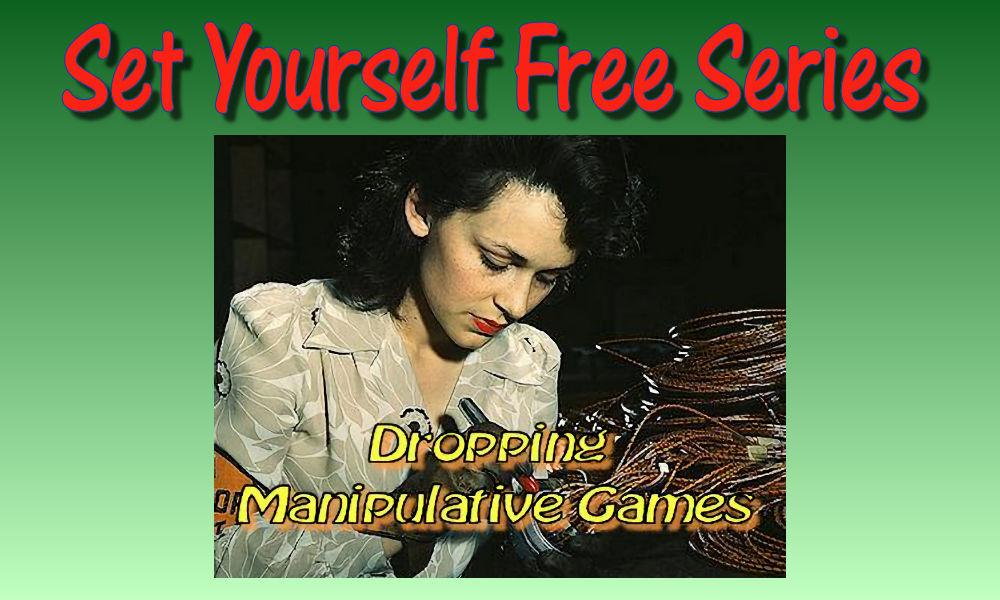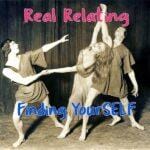- The Prison of Body Resistance — Set Yourself Free Series
- Prisons of the Spirit — Set Yourself Free Series
- The Prison of Imagination — Set Yourself Free Series
- Breaking Through Beliefs — Set Yourself Free Series
- True Intimacy — Set Yourself Free Series
- True Liberation — Set Yourself Free Series
- Learning by Letting Go — Set Yourself Free Series
- Unbinding — Set Yourself Free Series
- Dropping Manipulative Games — Set Yourself Free Series
- Passionate Engaging — Set Yourself Free Series
Dropping Manipulative Games — We manipulate because we want others to fix life for us. Learning to drop manipulation is the first step toward self-responsibility
For more on this topic, read:

This Endless Moment
An excellent guide to life and living.
Learn to focus your attention of who you really are.
Purchase all formats from Amazon
Purchase digital versions
(Apple, Nook, Kobo, etc.) from this page
A client once said,
“My boyfriend insists on manipulating me — he demands that I do things his way. What can I do to change him, and if I can’t, do I dump him? And what if he dumps me first?”
One of the very first lessons we need to learn is this: None of us have any power to make someone else do something (We’re not talking about pulling out a gun and forcing them–we’re talking about manipulative speech.)
What we typically describe as “manipulation by another” is always about our belief that we can be manipulated, followed by our choice to give up our personal strength.
This is an issue that affects each of us at some level. It’s an old issue, and it affects all of us because all parenting is nothing more than blatant manipulation, designed to “humanize” or civilize kids.
That’s the prelude. Now, let’s dig in.
Let’s start with a definition of manipulation.
- 1. to treat or operate with the hands or by mechanical means especially in a skillful manner
- 2a.to manage or utilize skillfully
- 2b : to control or play upon by artful, unfair, or insidious means especially to one’s own advantage
- 3. to change by artful or unfair means so as to serve one’s purpose
(from Merriam-Webster OnLine )
Let’s whiz through these definitions.
- Definition #1: We use “manipulate” in a positive sense when we’re talking about activating and controlling, for example, machinery.
- #2a. We also use the word to describe the techniques, say, of a chiropractor or Bodyworker.
- #2b, #3: We use the term negatively when describing “unfair or insidious means.”
And just to put it out there, “artful means” happens in, say, therapy (or this article!) and the Zen term for this is “Upaya.” (skillful means.)
This is “good” manipulation, Like parenting is “good.” It’s designed to provide a safe environment in which one can make choices.
Negative manipulation, on the other hand, is always about getting someone else to do what you refuse to fix in yourself.
Let’s zip back to kids, and then leap forward to us.
Let’s also get a couple of things straight.
When kids are born, they are, for all intents and purposes, autistic. Left to their own devices, they die. Period. Even though they have predispositions, genetic or otherwise, to a certain way of being, children are incapable of self-socialization (we call this “going feral.”)
Put a couple of 1 or 2 year olds in the same room and walk away, and sooner or later someone is going to be pounding the other over the head.
Socialization is learned behaviour, and parents set this in motion. It becomes the sole responsibility of the child at, say 16. This does not change the fact that socialization happens within a “manipulative” (hopefully skillful or artful, but often not) framework.
“Adults” provide the boundaries, the direction and the rules.
There is no one human way of being, beyond the obvious biological behaviours of eating, drinking, eliminating, breathing, screwing, etc. That’s what makes travelling around the world so much fun, so much of a challenge.
People are as they are because that’s how they were brought up. That’s how they were molded, or manipulated into being. Without manipulation, society — civilization — would screech to a halt.
We can’t change how we were brought up. We do, however, have myriad choices about what to do when the “official manipulation” ends.

In the West, ever since the accursed advent of the New Age Movement, we’ve been on a slippery slope. Since the 60s there’s been reluctance to actually parent a child.
We hear all this, “They have to figure it out for themselves” stuff. Oer, “I don’t want to stifle their genius!” Gag me with a spoon.
It’s almost as if parents refuse to parent because they don’t want to insist on certain behavioural standards. Yet, when you think about it, basic behavioural standards, repeated consistently, are the foundations upon which the future is built.
And nothing is more important than instilling the foundation of “self-responsibility.” We manipulate them out of feral-ness, and into civility, and then (I fervently wish) teach them to stand on their own two feet, learn about themselves, and become self-responsible.
This as opposed to the new norm, which appears to be parenting (guiding, directing — whatever) until the “kids” are 60 or so…
I’m actually plugging the value of parental manipulation. But I’m using definition 2a, “to manage or utilize skillfully.”
Here’s a story from some years ago: A friend was discussing a moment with her 8‑year-old son. Forever, she’d focussed on teaching him boundaries, choice and limits, age appropriately. He was in 2nd grade and, for the first time, had homework.
The “limit” is, homework has to be done by bath-time, which is a fixed, non-variable time. The choice is, does he do it when he gets home, right after supper, or at the end of his day? He’s been experimenting with several options.
So, one day, he decides to go for “evening.” Out he goes to play. Mom calls him in at homework time. This would be her job: he’s 8, and mom is providing the structure for his experience. (If she hadn’t he’d have stayed out, playing. We all know that.
The stated goal is, “homework done by bath time.” That stated goal is the structure.
In he comes, upset, as his friends have just begun a game. During the next several minutes, mom reminded son of his choice. Son had his feelings. He cried, and with mom’s help, expressed his anger.
He vented that it was all mom’s fault because she called him in. Mom encouraged him to get it out his system.
There’s more to the story, but the nifty ending is this: amid tears, son says, “I really made a bad choice!” (This is the beginning of self-responsibility.)
This is teaching (i.e.positive manipulation) at its best. Her 8‑year-old owned his choice, his behaviour and his actions. Repeated again and again, he will eventually get to self-responsible.
OK. So, structure and goals and boundaries are necessary for parenting. Where manipulation gets its bad name is when it’s used adult to adult, in an interpersonal relationship.
Let’s look at the question that provoked today’s article.
“My boyfriend insists on manipulating me — he demands that I do things his way.”
People manipulate because it works.
If I have a need or a want, and I discover that whining, griping, berating, begging or insisting causes my partner to cave in and give me what I want, why wouldn’t I do it? However, and it’s a big however, this only works if my partner chooses to give in to the manipulation.

Short of physical violence, (which is never, ever, appropriate) there is no way anyone can make me do anything. Further, there is no way anyone can make me feel anything.
We’ve been here endlessly, and we’re here again. No one makes me angry. I make me angry. I choose anger.
Hey, the 8‑year-old in the story, above, got this one. Wake up and get it!
So, the way to stop being manipulated is to stop caving in.
Oh, sure. Here come the, “If he really loved me he’d stop doing that because I asked him to” swill. Phooey.
On some other planet maybe what you want would matter more than what your partner wants, (to him,) but not on this planet. On this planet, you get to be responsible for yourself, while engaging with your partner as if he is solely responsible for himself.
The “if he loved me, he’d…” statement is also a blatant attempt at manipulation.
He wants you to change your behaviour from “x” to “y”. You want him to change from manipulating to not manipulating. What’s the difference?
Let’s all repeat this in chorus: “No one can manipulate me into doing anything. If I give in, I made a choice.”
I once had a client who was having problems with her partner. She said, “I made a list of all the things he does that drive me crazy. I said, “If you love me (gag, gack) you won’t do any of these things ever again.”
She was actually pleased with herself!!!
I said, “Good! Clever! You made it ever so much simpler for him. Now he knows a whole pile of ways to push your buttons.”
She: “Oh! He wouldn’t do that!”
Me: “Has he in the past?”
She: “Yes”…Oh!”… my… god!”
Now, hopefully you know what I said next, and I hope you don’t think I said, “Well, maybe some day he’ll stop torturing you.”
What I said was, “You gotta get over yourself. Disconnect the buttons. Stop torturing yourself. If you wait for him to change so you can be happy, this is going to take forever.”
Second part of the question:
“What can I do to change him, and if I can’t, do I dump him? And what if he dumps me first?”
Answer: you can’t change another person. Only they can change themselves. Your choice is to absolutely and completely stop reacting to the manipulation. Period. It’s your life. Who’s responsible for it? YOU!
Now, if after stopping your reaction, and letting your partner know that this is your new way of being and choosing, your partner continues to attempt to manipulate, your choice is to either:
- accept the fact that s(he) refuses to let go of that behaviour, and choose to stay, or
- leave.
In other words,
- the first step is to stop acting like and seeing myself as a helpless victim of another’s manipulation.
- The second step is to make better choices by not giving in, ever, to manipulation.
- The third step is to observe what happens in the relationship when I stop biting.
- In the vast majority of cases, the manipulating stops, and dialog starts. And we reach an understanding.
- In some cases, not biting makes no difference, and the relationship becomes attempts at manipulation with no response. Some people choose to stay in this dynamic. Most leave.
Take a look at what kinds of manipulation games you play. Are you the victim, the perpetrator, or both?
Cut it out. Grow up and let go. And just for the hell of it, give self-responsibility a go.





